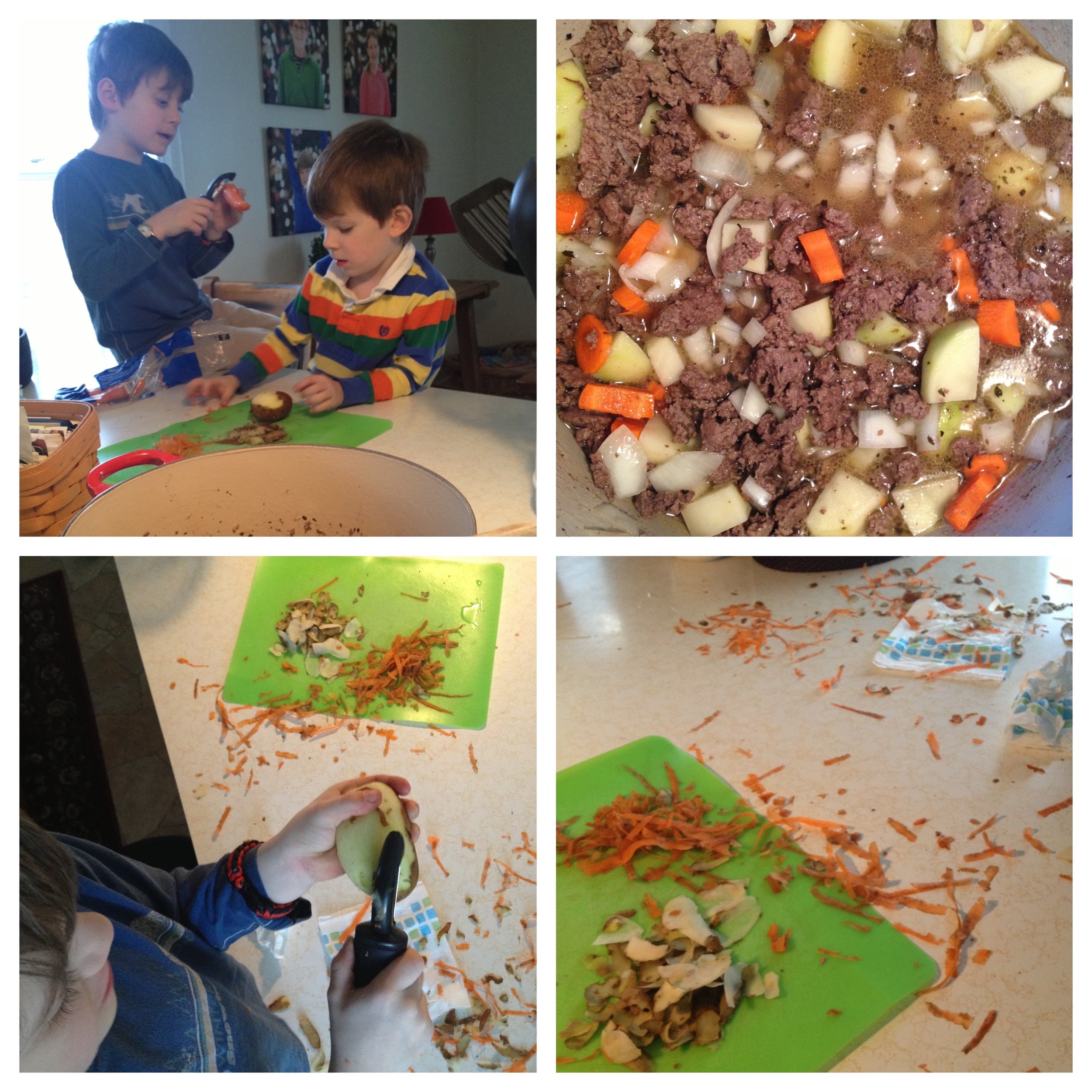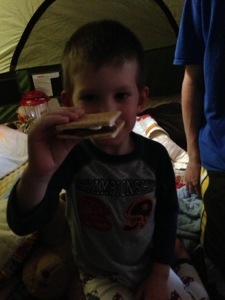Forming a family, raising children, being faithful in the daily tasks of home keeping and baby nourishing can feel draining. But there is hidden treasure in the making. Here is a moving reminder of the real wealth in family relationships: Watch this video
What if Your Friends are a Bad Influence?
In my recent advice column at Boundless.org I answer the question "How can I end a friendship that pulls me away from Christ?"
Read moreHow to Teach Your Child to Read
if you're like me, you've probably had moments where you felt more than a little competitive over your child's ability to read. I always thought it would be cool to proclaim, "My child was reading at age three!" Though I never had that chance, because our kids were average (statistically, most kids are), it was no less a thrill to witness their blossoming ability to read.
There are no prizes for who reads first or earliest, but oh the joy of being able to read. That is reward enough. And how sweet to be the one to see the lights go on for the first time and the decoding begin!
Read moreHow to Find Good Books, Part 2
One of our favorite things about summer's longer, less-structured days is all the time we can spend reading. To make the most of the time, I'm calling ahead by pre-ordering a bunch of books from our local library using their website, something that's available in most public library systems.
Today my focus is geography books. With so many to chose from, how can I know which ones to order? Especially for kids that range widely in grade and reading level? My favorite online book-finder resides at SimplyCharlotteMason.com. It’s a searchable database of “living books” (the sort that make a subject come alive). If you don't know about Charlotte Mason, see Karen Adreola's Charlotte Mason Companion, a fine way to kick off your own summer reading.
Today I was looking for geography books for all of our kids (ranging from Pre-K through 8th grade) so I simply clicked the geography category with no set grade range. The site generated more than 20 pages of results. Lots to choose from. Many are available from our local library. A few that looked especially good aren't, but they’re likely on Thriftbooks.com or Abe.com.
Happy reading!
Why Have Babies?
In an age when there are a hundred reasons not to have babies and very little encouragement to have them, I want to urge couples not to miss the blessing.
Read moreCamping in the basement
The Benefits of a Family Hobby
Jerry Seinfeld famously said, "There's no such thing as 'fun for the family.'" True? We don't think so. When Steve and I were dating our pastor talked about the importance of teaching his kids how to have genuine fun. ... If membership in your family is fun, challenging and important — something valuable — your kids will be less likely to pull away.
Read moreThis Beautiful Mess
Finally, nap time. I had just tackled the morning mess, including breakfast and lunch dishes and a few soaking pans from the night before. Being 30-weeks pregnant with baby number three, I was desperate for some sleep. Mercifully, our four-year-old went down without complaint. Our six-year-old was just as eager for some playtime by himself. I left him with Legos, books, crayons and the run of the living room. All was well.
I awoke an hour later to loud whispers in my ear. “Mommy, come see what I made!”
I rolled out of bed as he led me by the hand to see his masterpiece. At the foot of the stairs, the living room was shrouded in couch cushions, coordinating throw pillows, wool wraps, and freshly washed sheets.
“Don’t you love it? It’s my fort!”
“Honey, this is great,” I mustered. “But remember, we’re having company for dinner and Mommy just cleaned, so you have to put everything away.”
He looked at me with his puppy-dog eyes. “It’s like you care more about the couch than me,” he said.
“No, of course I don’t,” I said, knowing he wouldn’t understand my dilemma. I was proud of his creativity. But did it have to come at the expense of my peaceful, beautiful, orderly home?
What Matters Most
How could we have known, back when I was pregnant with our little fort builder, that the most important test of a good couch was not its construction, comfort, or color scheme?
What mattered most once the kids arrived, was how easily all the cushions and pillows could be removed and made to resemble a pirate ship, volcano, or secret hideout. At least we’d had the foresight to spring for the Scotchgard treatment.
We were naïve. Lost in a steady stream of Pottery Barn catalogues, we shopped with dreams of showroom furniture artfully arranged in our first home. The only problem with that fantasy was the people, or lack of them. If you notice, there aren’t any in most furniture catalogues. Apart from the occasional dog or monogrammed towel suggesting a human presence, those catalogues are lifeless. But aren’t people what matter most?
The Purpose of a Home
In Home Comforts, a book about how a home works not how it looks, author Cheryl Mendelson writes, “When you keep house, you use your head, your heart and your hands together to create a home—the place where you live the most important parts of your private life.” When kids are little, the most important parts have a lot to do with making messes.
Stephen Curtis Chapman captures this idea in his song Signs of Life:
I’ve got crayons rolling around in the floorboard of my car,
Bicycles all over my driveway, bats and balls all over my yard,
And there’s a plastic man from outer space sitting in my chair.
The signs of life are everywhere.
Eternal Treasures
At times when Steve complains about the landscaping rocks the kids have thrown in the grass, I remind him, “Honey, we’re raising kids, not grass.” Recently he turned it back on me, saying, “We’re raising kids, not occasional tables and leather ottomans.”
Those things aren’t eternal. No matter how perfect something is when you get it—or what you do to keep it that way—it won’t last. As disappointing as that may be, it’s freeing to just accept it. One motivational writer says she knows her stuff will break sooner or later, so she just looks at it and thinks, It’s already broken. That saves her the stress of trying to keep it perfect.
For me, it makes sense to look at our stuff and think, It’s already sticky. This attitude of not frantically trying to keep our stuff pristine is consistent with Matthew 6:19: “Do not store up for yourselves treasures on earth, where moth and rust destroy, and where thieves break in and steal.”
My goals for our home no longer include maintaining the look of a decorating magazine. Our home wasn’t built to be a showroom. The life encompassed within its walls—loving husband and children, having babies, teaching them to know and love God—is far too important to be diminished by such low aims. Even if it means having to work my way through a cushion fort to finish my nap.
[Note: I wrote this article back in 2006. We've since passed our pirate-ship couch on to some friends and replaced it with a cushions-attached sectional. But the realization of what matters most is even more true now—with four kids and evidence that the mess-heavy years really do fly by—than when I wrote it.]
Family requires sacrifice
It is the right of little children to have individual love all day long and to have more than the tag ends of affection. But this situation will not change until the family is seen as an institution so precious that men and women will sacrifice something, even in excitement and personal expression, in order to maintain it.
--Elton Trueblood
Kitchen Help
 They were so excited to help and I was thrilled to realize four is old enough to wield a potato peeler! Taking turns alternately peeling carrots and potatoes for our harvest soup, their joy in being able to help make dinner made light work of it. It was a surprisingly cold day, but unexpectedly cozy in the kitchen.
I almost hated to clean up all the peels; evidence of delight all over the countertops.
They were so excited to help and I was thrilled to realize four is old enough to wield a potato peeler! Taking turns alternately peeling carrots and potatoes for our harvest soup, their joy in being able to help make dinner made light work of it. It was a surprisingly cold day, but unexpectedly cozy in the kitchen.
I almost hated to clean up all the peels; evidence of delight all over the countertops.
A New Problem with no Name
Fifty years ago today, Betty Friedan released the book The Feminine Mystique in which she described “a problem with no name.” She described how educated women felt trapped in suburbia, gazing longingly toward unrealized opportunities in corporate offices. Today, women enjoy those opportunities in the workplace, but are now experiencing a new problem with no name as they find themselves looking out their corporate windows wondering about life with a family. Writers ranging from conservative Danielle Crittenden to liberal Sylvia Ann Hewlett describe women who find it tragic that their corporate success came at the expense of having the opportunity to invest in children. Crittenden writes, “In the richest period ever in our history...the majority of mothers feel they have ‘no choice’ but to work.” In just 30 years, Hewlett says, “we've gone from fearing our fertility to squandering it--and very unwittingly.”
This is what it's come to. The successes of women in the twenty-first century are diminished by their sacrifices. For all our relative wealth, we can't afford babies. For all our learning, we don't understand the limits of fertility. For all our advances as women, motherhood seems unreachable.
Adapted from Start Your Family: Inspiration for Having Babies
What to Expect When No One is Expecting
Jonathan Last has written the best book to date on the dramatic global retreat from family making. It has the creative title What to Expect When No One is Expecting and we mentioned it briefly here where we included an excerpt published by the Wall Street Journal. Recently, Last gave a talk for the American Enterprise Institute that provides an excellent overview of the book.
Just Friends Limbo
When Steve and I were first becoming friends--and I was hoping it would become something more--he was dating someone else. The "other woman" is part of the high-jinx of our story and it seems to resonate with a lot of women. So today I answer a question from a woman who's wondering if she (or her friend) should do the same. She asks,
In Get Married, you explained how as you and Steve were becoming friends, he dated another woman for a short season. If a woman is growing in friendship and connecting well with a guy to whom she is attracted, but he is dating someone else, what would you advise her to do? Should she continue to develop the friendship? How can she discern if God wants her to forget about the guy and move on, or to continue to hope and pray for a relationship with him?
It's always tricky, and maybe a bit risky, to speak to someone else's situation from your own. This question is a good reminder of that! Here's some of my reply:
This is a perceptive question and a reminder that much of what I share from my own story is descriptive (it tells what did happen) and not necessarily prescriptive (telling what should happen). To know what we should do in any given situation, we have to go to God's Word, the Bible. It's there that we learn who we are, who God is and what He requires of us. We learn of our design — how we were made by God to flourish, and how, because of our sin nature, we often limp along against the grain of that design.
There is no verse in the Bible that says, "Thou shalt not hope a man who's dating someone else will become available for you to marry." Nor is there a verse that says you should. What's needed in situations like this is wisdom (see the book of Proverbs, especially chapters 2, 8 and 9). It may help to ask some questions about the situation.
To read the rest of my answer, and see what those questions are, read "What if the guy I like is dating someone else?"
Family Declines Prompt James Dobson to Write Dystopian Novels
Dr. James Dobson, author of over 25 books on marriage and family, recently released his first novel, Fatherless. With his co-author Kurt Bruner, Dobson portrays a dystopian future in which foundational family realities, taken for granted for eons, grow increasingly marginalized. Dobson recently answered questions about this new work in an interview with Religious News Service. Here are some highlights:
Q: Why did you venture into fiction after writing about real-life parenting for so long?
A: This is my first novel, but not my first foray into fiction. I have always believed in the power of narratives to influence thought and shape the spiritual imagination. While with Focus on the Family I challenged the team to create a radio drama series called “Adventures in Odyssey.’’ My co-author, Kurt Bruner, led that team for several years. We couldn’t be more excited about the potential of this new trilogy to embody themes on which I have been writing, speaking and broadcasting for decades.
...
Q: What are some of the real-life issues today that made you write this future fantasy?
A: The single threat to our future is the trend away from forming families to begin with. Marriage is in drastic decline. For the first time in history more women are single than married. Raising children is now considered an inconvenient burden rather than life’s highest calling. For the first time in our history there are fewer households with children than without. The most basic human instinct, forming families, is in dramatic decline. And the implications of that reality, as we’ve depicted in these novels, are breathtaking. That’s why we chose the looming demographic crisis as the backdrop to these stories.
We're hopeful this creative storytelling approach will engage people who otherwise wouldn't have heard about these pressing demographic trends or may have glazed over seeing them presented outside of a narrative context.
Loving your wife when you hate the romantic industrial complex
Men, as we enter the week of Valentine's Day, is there a part of you that feels a little anxious as sellers of romantic gifts and services peddle their wares and set expectations for how men should go about translating love for their wives? Are you tempted to just write it off as a Hallmark holiday and boycott the whole thing? If so, I think you'll enjoy something my colleagues Randy Stinson and Dan Dumas wrote about this that ran in the Southern Seminary Towers magazine:
Some men who suspect they should do more to express love to their wives are turned off by what we call the “romantic industrial complex”—the producers of cards, jewelry, flower arrangements, chick flicks, chocolates, candlelit dinners, stuffed bears, getaways and other romantic stuff — vendors who seem to be in a conspiracy to hyper-commercialize romance, they run men through a gauntlet of unrealistic expectations and then extort them into paying to prove their affection. You know it’s gotten out of control when Evergreen Waste Services of Delaware runs an ad that says, “For Valentine’s Day, nothing says ‘I love you’ like affordable, reliable trash service” (Can you imagine the husband that banks his Valentine’s Day on that gesture?).
Because of this kind of craziness, a lot of men we know tend to check out and write it all off as beneath them. There’s a lot to hate about the business aspects of romance. But you have to make sure you don’t throw out your baby (your wife) with the “Romantic Raspberry” scented bath water. You don’t have to become a mindless consumer of the romantic industrial complex, but you do need to love your wife and live with her in an understanding way. What matters is being enough of a student of who your wife is — what delights and encourages her — that you can customize your romantic efforts to her and tune out all the mass marketed stuff that you know doesn’t communicate love to your wife.
This study of your one-of-a-kind wife may lead you to see that what blesses her most are things, like encouraging words, uninterrupted conversations, morning notes, back rubs and other priceless things while expensive gifts and dinners out register little with her if they aren’t given in a way that shows that you know her. Your ongoing effort to know your wife and bless her distinctly may, however, lead you to realize that you need to “get off your wallet” and stop being stingy with your investment in her. And that may mean venturing out into the so-called romantic industrial complex. But you can (and should) bring leadership to the process. Have a good laugh at the “love junk” that gets marketed, but go take dominion and bring something back that shows that you know and cherish your wife. In that spirit, you can buy flowers, chocolates, cards and other things as unto the Lord and all to the glory of God.
I hope this is helpful as you seek to bless your wife this week.












